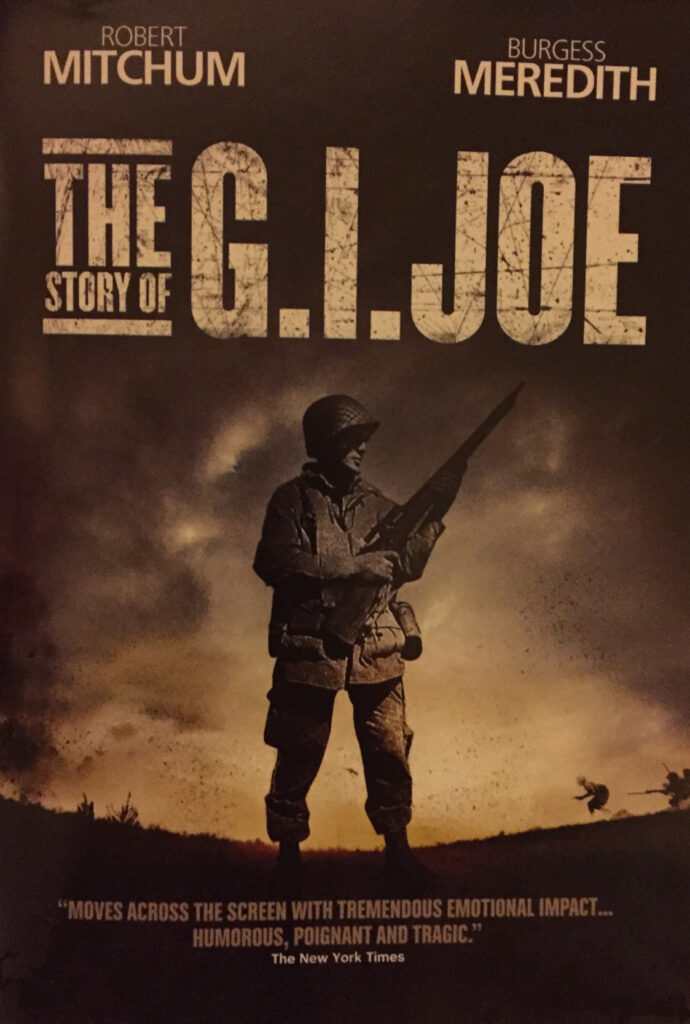
STORY OF G.I. JOE (director: William Wellman; screenwriters: from the book by Ernie Pyle/Leopold Atlas/Guy Endore; cinematographer: Russell Metty; editor: Albrecht Joseph; music: Louis Applebaum; cast: Burgess Meredith (Ernie Pyle), Robert Mitchum (Lt. Walker), Freddie Steele (Sgt. Warnicki), Chris Cunningham (UP), Wally Cassell (Private Dondaro), Lucien Hubbard (Readers Digest), Jack Reilly (Private Murphy), Jimmy Lloyd (Pvt. Spencer); Runtime: 109; MPAA Rating: NR; producer: Lester Cowan; Universal; 1945)
“One of the better war films.”
Reviewed by Dennis Schwartz
A gritty realistic war drama, shot during the war, that seems almost like a documentary as it follows through the eyes of Ernie Pyle the campaign of the 18th Infantry of Company C. It’s directed with compelling force by William Wellman and is based on the book The Story of G.I. Joe by Scripps-Howard’s Pulitzer Prize-winning war correspondent Ernie Pyle (Burgess Meredith). Ernie stayed with the outfit at the outbreak of the war when he was 38, and rejoined them a few years later when the green outfit became seasoned soldiers fighting their way through Sicily in the Italian campaign. He sticks with them in the front lines trekking over hills, mudholes and in the rain, and follows these citizen soldiers led by their able leader, Lt. Walker (Robert Mitchum), as they overcome many deaths and the ugliness of war. Walker is the character who leaves the greatest impression, as the other soldiers are sketchily drawn on purpose.
It has the same tough mood Sam Fuller utilized in The Big Red One, where the horrors of the killing fields were openly shown. Wellman took the grunt’s point of view, showing how the war was mostly a meaningless exercise of trying to survive and not a matter of heroics or flag-waving as often presented in Hollywood films. Pyle tags along with the infantry unit showing the citizen soldiers baptism under fire, their loneliness and fears, and the chaos of war. By sending back touching dispatches, the citizens back home can read about their loved ones and defenders of their country to get an idea of what the soldier was thinking and how the war was really going.
This competently made, slow paced, convincing war drama managed to convey the GI humor and portray them in a sympathetic light. It avoided banality by striking a poignant note in regards to the tragedy of war; also it captured in a natural way the soldiers’ lingo and concerns. One of the better war films. It plays as a moving homage to the soldiers who risked their lives to defend the country.
REVIEWED ON 5/31/2005 GRADE: A
© ALL RIGHTS RESERVED DENNIS SCHWARTZ